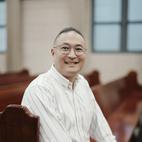Anxiety is a universal human emotion that arises when we, as finite beings, are confronted with the infinite and uncertain. Philosophically, anxiety is an essential state of human existence. The Bible also addresses anxiety extensively, acknowledging its universality while urging us not to let it dominate our daily lives, "Therefore do not be anxious about tomorrow, for tomorrow will be anxious for itself. Sufficient for the day is its own trouble" (Matthew 6:34). Scripture also teaches that trusting in God can help us overcome anxiety: "Do not be anxious about anything, but in everything by prayer and supplication with thanksgiving let your requests be made known to God" (Philippians 4:6).
Anxiety is not merely an abstract existential state; it often affects individuals within specific societal contexts. For some, anxiety may lead them to embrace Christian faith, but it can also bring spiritual confusion to believers. During times of significant societal change, individuals are more likely to experience anxiety and a sense of meaninglessness. Over the past forty years, China has undergone tremendous historical transformations. Amidst the sweeping tides of history, individuals have struggled to discern the direction of social progress, and anxiety has become a collective mentality in China's society. Reflecting on the development of Christianity in China during this period, it is evident that anxiety has had a profound impact on the church.
The collective anxiety of the society in China once kept the people there open to the gospel. In the 1980s, when China had just opened its doors to the West, the people, after the Cultural Revolution, realized that there was a huge gap between the economic level of China and that of the West. Some referred to the period under Mao as the "Lost Thirty Years" (1949-1976). Therefore, China had to try to catch up with the West, otherwise it would lose its place in the international community. Based on this thought, some Chinese intellectuals believe that Christianity, as an important foundation of Western civilization, is an ideological resource that China cannot bypass in its efforts to learn from the West. It is also argued that the fervent worship of Mao in China is due to the lack of transcendent elements in Chinese culture, which results in people easily seeing secular leaders as saviors. The Christian God is transcendent and can help the Chinese to demystify political figures. Christianity is associated with human civilization, and since the 1980s, the "Christian theory of civilization" has become the philosophy of many intellectuals.
The Tiananmen Square incident in 1989 was a pivotal event that profoundly impacted Chinese history and significantly influenced the development of Christianity in China. This event caused a deep psychological shock among many Chinese intellectuals, becoming an important external factor in the conversion of numerous intellectuals to Christianity in the 1990s. Many of these new Christian intellectuals inherited the concerns of their 1980s counterparts, who were deeply engaged with public issues and valued the impact of Christian thought on Chinese society. In this context, Chinese house churches in the post-1990s absorbed a significant amount of American theology, particularly American Reformed theologies with strong fundamentalist overtones. Anyone familiar with the history of American theology knows that fundamentalist theology emerged in the twentieth century during debates with liberal theology and that it possesses a multi-faceted character. Some Chinese house churches drew heavily from these aspects of fundamentalism. For instance, fundamentalism often emphasizes separatism, with adherents believing their faith to be the purest while viewing other Christian groups as having "fallen away." This separatist mindset resonated with/reinforced the self-identification of many Chinese churches, especially house churches. Additionally, fundamentalism places a strong emphasis on evangelism and missions, coupled with the belief that American society has declined and that only Christianity can redeem it. This notion aligned with Chinese intellectuals' aspirations to revitalize China through the Christian faith. Fundamentalism also tends to employ simplistic, black-and-white thinking when addressing social issues, a cognitive pattern that aligns with the worldview of Chinese intellectuals growing up with the Communist ideology in China. For these reasons, American fundamentalist theology quickly gained influence in China after the 1990s.
American fundamentalism has provided the Chinese church with urgently needed theological resources, but it has also caused significant confusion. Historically, Christian fundamentalism has been a distinctive phenomenon within American Christianity, with few comparable movements in European contexts. When fundamentalist theology was introduced to China, some Christians mistakenly believed it to be a universal theology applicable to the Chinese church. This misunderstanding arose because certain characteristics of fundamentalist theology resonated with the experiences of Chinese house churches. However, the integration of American fundamentalism with China's unique context has led to considerable theological challenges.
Many Christians in China who came to faith influenced by Christian civilization theory place great importance on Christianity's public influence. The stark contrast between their ideals and the realities of the society in China often leads them to seek ways to transform it. While this gap provides motivation, it also generates significant anxiety. Over the past thirty years, China's progress has been predominantly in the economic realm, with little fundamental change in public affairs or civil society.
Some Christians in China, influenced by an American fundamentalist worldview, believe that certain characteristics of American Christianity and society—such as religious freedom under the separation of church and state, the dominance of Christian values in society, and even in politics—should be the goals of Christianity in China. While some of these ideals align with the spirit of modern society, others bear distinct Christendom overtones that often conflict with modern societal principles. Some Chinese Christians have uncritically adopted these concepts in their entirety.
However, the reality is that Christians in China currently struggle to achieve even basic religious freedom, let alone aspire to use Christian principles to lead the society. This tension between ideals and reality has plunged many Christian intellectuals in China into deep anxiety. Some even view the United States as a "lighthouse" of Christian society, which makes it even harder for them to endure their own circumstances. As a result, some Christians in China experience even greater anxiety than non-Christians.
In the face of this anxiety, Christians often find it difficult to receive support from their churches. Over the past thirty years, China's urban house churches have grown rapidly, with most believers being first-generation Christians. However, the limited spiritual maturity of Christian leaders has resulted in a lack of spiritual resources within these churches. Consequently, many churches find themselves powerless to address the spiritual anxiety and confusion of their members. This challenge is exacerbated by the black-and-white worldview of fundamentalism, which often distorted pastoral care into a rigid, faith-based discipline. Churches often introduce strict faith-related norms that seem spiritually correct but are impractical to implement. For instance, some churches mandate that Christians cannot join, and those who are party members must resign after converting to Christianity, citing the party's atheistic stance. However, this approach raises further questions: if the Communist Party is atheistic and China's public schools are also atheistic, should all Christian children withdraw from public schools? And if so, where would they receive their education?
When churches promote spiritually correct but overly simplistic proclamations without offering the necessary resources or practical guidance, they risk deepening believers' anxiety. I am not suggesting that the church should avoid addressing such issues but rather that it should continue to explore and grow in practice. Churches should focus on nurturing the spiritual growth of believers rather than relying on overly simplistic faith guidelines, which may be the easiest approach for church management but fail to align with the process of Christian maturity. While catechism-like, question-and-answer-style solutions may provide convenience for church management, they rarely align with the true pattern of Christian growth.
Christians are often a particularly sensitive group amid significant social and historical changes. This sensitivity may stem from the transcendent perspective of the Christian faith, which provides Christians with a prophetic lens to interpret historical events. However, it can also manifest as heightened stress responses to societal issues.
Throughout history, we can observe a recurring psychological tendency among Christians: during periods of social and economic prosperity, their theology tends to become more optimistic. However, when faced with economic downturn or increasing socio-political uncertainty, Christians are more prone to pessimism and despair.
This shift is evident in China's churches. From 2000 to around 2010, Christians in China exhibited a notably optimistic mindset. Some even believed that the rapid growth of Christianity in China would lead to the nation becoming the world's largest Christian population and the most significant driver of global faith, potentially transforming both Chinese society and international dynamics. This optimistic outlook persisted until around 2015.
However, with shifts in China's religious policies, the deterioration of Sino-US relations, and especially the outbreak of the COVID-19 pandemic, the heightened social control in China has fostered widespread anxiety and uncertainty. The collective mindset of Chinese Christians began to change dramatically. Many moved from seeking to positively influence or transform Chinese society to focusing on emigration. Within a short span of ten years, the mentality of many Christians in urban house churches shifted from ambitious visions of societal transformation to a panicked desire to leave the country.
Whether it is the optimism that characterized the Chinese church around 2008 or the pessimism now prevalent in some churches, both reflect a reactive response to immediate social circumstances, lacking a long-term perspective. This phenomenon, which reveals a faith shaped by "Reactive Faith"—a mindset shaped by immediate social pressures and short-term concerns—is common among many Christian communities. The theology underlying this mindset often hinders the development of a deeper, long-term understanding of the relationship between faith and society, leading to a singular focus on living in the "present" that limits theological and spiritual depth.
I believe that in the face of uncertainty and anxiety about the future, Christians must return to the essence of the gospel. While the gospel has the power to transform society, societal change has never been the primary focus of Christian faith. The gospel transforms society by bringing hope to individuals and inspiring moral renewal. The gradual transformation of individual lives collectively fosters societal progress.
In the early church, Christianity was a marginalized faith. Yet, through their ethical witness, Christians drew the people of the Roman Empire to the gospel. Over time, this quiet yet powerful testimony led to the ultimate triumph of Christianity. In the same way, churches in China must grapple with the complexity and ambiguity of history, avoiding the temptation to interpret its circumstances through simplistic, dualistic thinking.
In the face of social injustice, Christians are called to speak out and take positive action. However, Christians in China must also understand that the Christian view of history is linear, with the ultimate hope resting in the promise of the new heavens and the new earth. When we recognize that God has placed us in a specific time and context for his sovereign purpose, we can adopt a posture of "hope in action" and "action in hope." In doing so, we can overcome anxiety, bear witness to our faith, and bring God's light into our daily lives.
Editor's note: This article was originally written in Chinese and was translated and edited by the ChinaSource team with permission.
Originally from the 'ChinaSource'
CCD reprinted with permission












